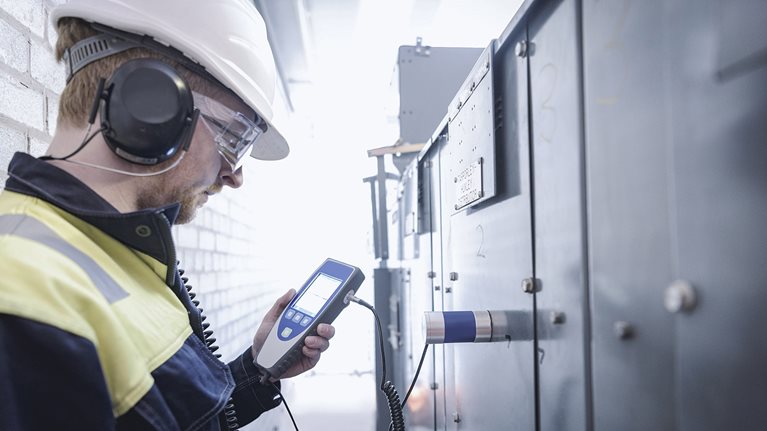Like every other industry, the utility sector is facing major disruptions to their operations, workforce, and plans due to the coronavirus pandemic. So far, utilities have done their job: providing power while protecting their employee’s and customers’ safety. During times of stress, however, other matters can get lost in the sense of urgency. Specifically, the danger is that utilities will pay too little attention to protecting – and even strengthening – their culture.
McKinsey views culture from the lens of organizational health—that is, how a company aligns around a common strategy, executes against it, and renews itself over time. Nearly two decades of research has consistently shown that organizational health is a strong predictor of future performance, with healthy companies showing three-times higher total return to shareholders and 2.5 times return on invested capital (ROIC). This same pattern applies to the power sector, where companies in the top quartile of organizational health outperform their unhealthy peers with 4.3 times higher EBITDA value and better workforce safety. In short, organizational health is not a luxury to think about only when times are good; it is a way to build an enduring high-performance culture that can enable companies to survive the worst.
Here are five actions for utilities to take now to protect and strengthen organizational health and to prepare for a future marked by uncertainty.
Let data guide you.

Daily operations in the utility sector have been upended. Engineers, office staff, and planners are working from home. Those who cannot, such as field crews and plant operators, are worried about contagion. Leaders are anxious about everything, including falling demand and rising defaults; at the same time, what they knew about their corporate culture six months ago may no longer be true now.
As their employees’ needs evolve, how can utilities inform themselves so that they are not flying blind? The answer is straightforward: ask them, often. There are a range of tools that can help build this dynamic fact base: large-scale weekly mini-surveys featuring only one or two questions; one-to-one check-ins; townhall-style question-and-answer sessions; online discussion forums; virtual focus groups and happy hours. Bring new digital tools to bear, e.g., user-friendly solutions that allow employees to share free-form comments via email or SMS and then use natural language processing to distill themes. Organizations cannot assume they know what their people need; get the facts, often.
Motivate with the mission.

Utilities provide an essential service that their customers—both individuals and businesses—need as they weather the pandemic. This mission can be a powerful source of motivation for employees; indeed, it is a source of pride for many in the industry. As one utility leader told us, "We are at our best during a crisis." The importance of developing these capabilities is demonstrated in McKinsey’s Organizational Health Index database: the healthiest electric power and natural gas (EPNG) organizations emphasize getting employees involved and creating a shared vision and meaningful values.
To demonstrate purpose consistently, it is important to listen to what stakeholders say they need most, and to meet those needs as much as possible, even if it hurts—perhaps by suspending disconnections to customers in default (as many regulators are now requiring). Utilities can also use their strengths in unexpected ways, for example by delivering materials from local health agencies when servicing residences. Senior executives need to lead from the front, demonstrating their commitment to the mission through substantive action—delivering food and care packages to on-site workers and taking any pay cuts first. Utilities can also tell stories of how their employees have helped their communities. The ability to connect with purpose can build a sense of identity and meaning that could long outlast the immediate crisis.
Communicate, care, and connect.

Communication is essential to keep the organization on the same page and moving in the same direction. Remember that it's okay to not know all the answers, and to say so. As one senior leader said, sometimes the best she can do is say, "Here’s what I know, here's what I don't know (but how we're going to figure it out), and here's what I hope for." The best communicators nail five things:
- Give people what they need when they need it.
- Communicate clearly, simply, and frequently.
- Be honest about where things stand.
- Revitalize resilience by seeking to restore confidence
- Establish a clear understanding of what is happening, and set out the path ahead.
How companies lead through the crisis will leave a lasting mark. That requires both paying attention to people’s needs and taking real action to meet them. Wherever possible, leaders should work to accommodate workers who are struggling with new challenges as they adapt to working from home or new on-the-job safety requirements. Find new ways to balance child care and health concerns. Connect with those who may feel isolated and uncertain. Create moments for human connection with team members and colleagues every day, whether virtually or in person (while respecting physical distancing and other safety requirements). Demonstrate that you care about employees' growth and long-term futures by helping them invest in their own skills and career development.
According to our Organizational Health Index database, many EPNG companies fall short on creating accountability and rewarding performance, so use virtual learning and practical assignments to build skills in building trust, having difficult conversations, and setting personal development goals. If layoffs are necessary, it is important to communicate thoughtfully and to be as generous as possible. How companies treat their people today will linger long in institutional memory.
Finally, remember that leaders need support, too. One utility leader told us that coping with the crisis while also projecting calm was incredibly stressful. He valued the virtual leadership check-ins that his unit had recently instituted as a place to let down his guard, ask questions, and empathize with his peers.
Change the way work is done.

The EPNG companies that rank best in organizational health have continuous improvement cultures. They empower their employees to "find it and fix it"; set clear performance goals; share knowledge and ideas; and reward those who find ways to deliver outstanding results. Use the current disruption to hone execution. In previous research, McKinsey set out four building blocks for leaders to bring lasting change: role modeling the desired culture; fostering understanding and conviction; building capabilities and confidence; and creating formal systems to reinforce the stated priorities. Along the way, companies may find they have found new norms to preserve permanently.
What might this look like in practice? A few ideas: empower workers who have unexpected downtime to find new and better ways to get work done: tap into work-from-home/stand-by field crews to simplify procedures and to "human proof" error-prone workflows. Celebrate wins to encourage others to take smart risks. Invest in virtual capability-building in key areas like waste identification and problem-solving. Ask leaders to help their teams identify areas for improvement. Share "week in the life of" vignettes to show how leaders and employees are making a difference. Protect and elevate those who are excelling in continuous improvement.
Change the way work is done, rather than generating countless standalone culture initiatives that could overwhelm stressed-out employees and not lead to meaningful impact.
Stay close to customers.

Even the healthiest EPNG organizations often lag global benchmarks in the Organizational Health Index database on two criteria: external orientation and customer focus. Utilities should use this moment of truth to refocus on their customers and communities and to catalyze constructive change. Doing so is not only critical to get through the current crisis, but to prepare themselves for future disruption. Having strong external relationships matters enormously during a crisis; it can also help build organization health by creating a positive and well-understood internal culture.
Find ways to go above and beyond to care for your customers and community. Reach out and let the community know how the organization is committed to providing affordable and reliable power throughout the crisis. In some cases, that can mean easing customers' financial burdens, whether by passing on lower wholesale prices, informing them of energy saving opportunities, or offering deferred-payment plans. Develop and deploy digital options, such as alternative online payment methods or chatbots to help avoid trips to in-person service centers. Make physical operations as touch-free as possible. Help field crews and other company representatives can explain why critical work, such as pole repair and land management, is needed.
The coronavirus pandemic is a watershed moment. Now is the time for utilities to improve their overall health and to live their purpose—not only to survive the crisis, but to build strength for a next normal that will be very different than the previous one.
Blair Epstein is an associate partner in McKinsey’s San Francisco office. Mengwei Luo is an expert in the New York office. Jonathan Taylor is a consultant in the San Francisco office, and Brooke Weddle is a partner in the Washington, DC office.


